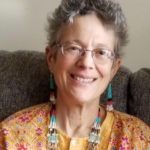
This year the secular months of November and December align very closely with the Hebrew months Cheshvan and Kislev. By the time November arrives, the holidays of the Hebrew month Tishrei are usually already a few weeks behind us. But this year, owing to “leap month” added to the Hebrew calendar in early spring of 2019, the holidays from Pesach through Simchat Torah fell on later dates in the Gregorian calendar than usual, and hence Simchat Torah only concluded on Oct. 21 or 22 (needless to say, the Hebrew dates never vary).
This periodic adjustment if the Hebrew calendar prevents the Jewish holidays, many of which are based on the agricultural cycle and therefore must be observed during the specific season designated in the Torah, from becoming unmoored from the solar calendar and observed in the wrong season. The other benefit of adding an extra month to the Hebrew calendar every 2-3 years is that this sometimes results in an alignment of the Hebrew and Gregorian months, which can also make it easier both to track the Jewish holidays and to focus on each book of the Torah as we progress through the annual Torah reading cycle.
As you know, during Simchat Torah, we complete the reading of the final parashah in the Torah, V’zot Hab’rachah, and immediately read the beginning of the first parashah, B’reisheet, or Genesis, as we celebrate the renewal of the annual Torah reading cycle. Jews worldwide read B’reisheet again in the synagogue on the Shabbat immediately after Simchat Torah, which this year was the last Shabbat in October, and continue with a new parashah, Noach, or Noah, on the next Shabbat (this year, the first Shabbat in November).
There are 12 parshiyot in Genesis, and even though we don’t read from the Torah every Shabbat at Beth Sholom, I encourage you to read and study the Parashah each week, particularly those in Genesis which are read during the months of November and December. You will find in the descriptions of the Creation of the World, the personalities, adventures and struggles of the Patriarchs and Matriarchs, and the endlessly fascinating soap opera on Joseph, creative attempts to answer many of the perennial human questions about life, such as: Why must we die? Is our true nature more animal like or more god-like? Why did God create us? Or: What is our purpose on the earth? Why is the human family divided into different nations and different languages? Why are childbirth and human labor so painful and difficult? What are our loyalties to self, family, God and neighbors, and how do we navigate conflicting loyalties or demands? What is the nature of our relationship with our family members, our neighbors, strangers, God?
November also happens to be Jewish Book Month. Why not start with our original Book – the Torah? I encourage you to make Torah study a weekly activity. Here are two terrific on-line resources to help you: https://reformjudaism.org/learning/torah-study;
https://www.myjewishlearning.com › torah-portions
